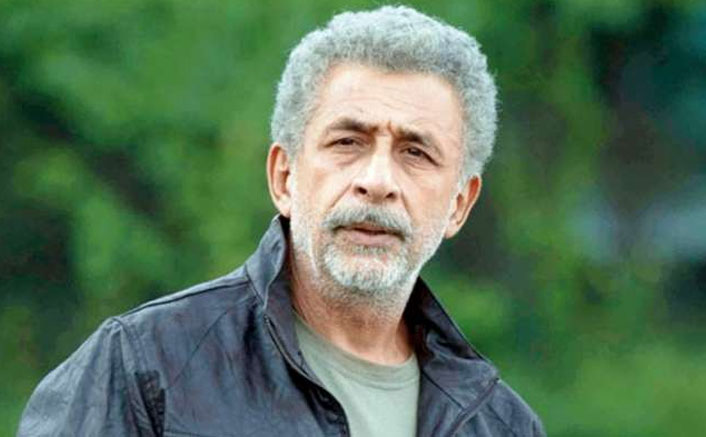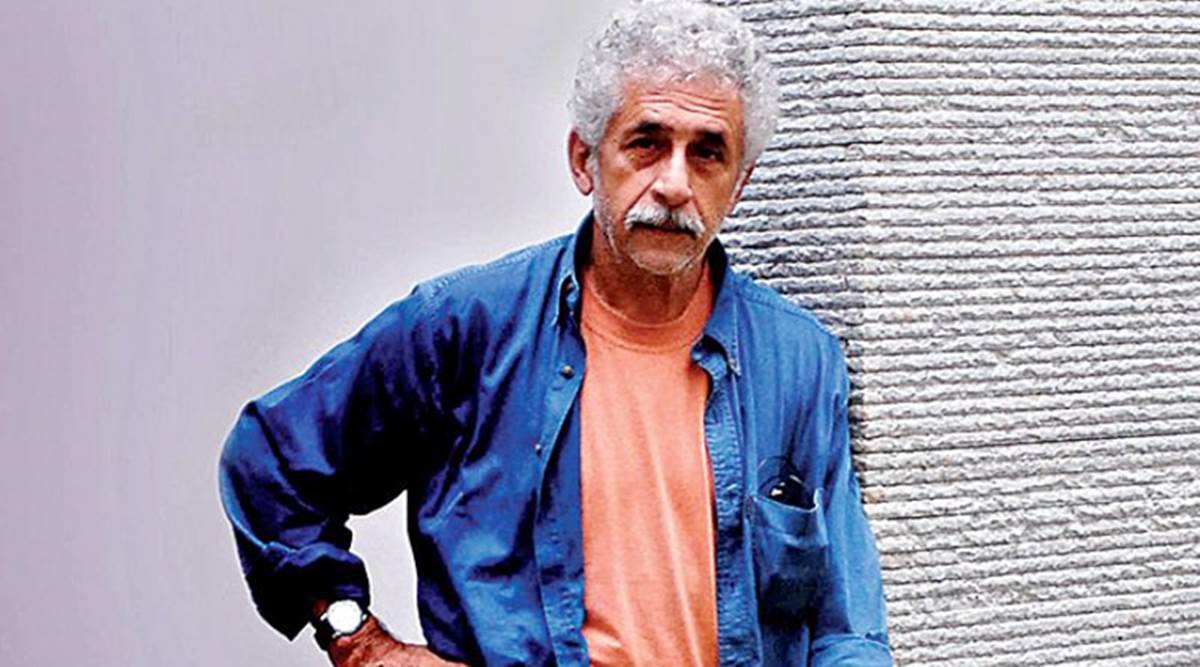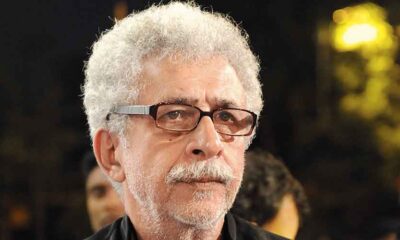Exclusive Premium Content
Happy Birthday, Naseeruddin Shah, Are You India’s Greatest Male Actor?

Each birthday now means the tolling of the bell for Naseeruddin Shah.
Says Naseer, “Thoughts of mortality have been in my head since I turned fifty.Each new decade introduces one to newer bodily frailties.And I want to get more work done before my time is up. The thought of death doesn’t scare me but the possibility of becoming an invalid does.”
As he approaches the winter of his life Naseer recalls there were no birthday celebrations when he was a child.
Asked to name his favourite performances, Naseer quotes George Bernard Shaw who when asked to name the three greatest writers of all time began his answer with “The other two are….”!!!
Naseer’s own favourites are Nishant, Sparsh Masoom,Mandi and Bombay Boys. “However I’ve had more than my share of great parts and am perfectly happy now to participate in projects which I enjoy doing.”
Theatre has always been more fascinating to Naseer than cinema? “Theatre, like a tree, is a living thing which continues to organically evolve, unlike films where once it’s done it’s done. Also in theatre one can engage with the greatest texts in the world whereas in our cinema we have to mostly make do with the work of hacks and plagiarists.”
My favourite Naseer performance include Sai Paranjpye’s Sparsh. Many have played blind. But none as the one who can see right through human hypocrisy. Naseer as the the self-respecting , self-sufficient visually impaired Annirudh Parmar is the best portrayal I’ve seen of a blind man in cinema from any part of the world in any language.This incredible performance has become a reference point for all actors playing blind. Stumbling over furniture to look blind went out of fashion after Naseer’s Sparsh.
Another personal favourite is Albert Pinto Ko Gussa Kyon Aata Hai(1979). I love watching Naseer do accents. Because he doesn’t “do” them . He embraces accents like long-lost brothers. As the angry Albert Pinto, Naseer was spot-on with the Catholic colloquialism. Like Meryl Streep,Naseer never loses hold of an accent. The language doesn’t betray the character for even a second. But why is Pinto so angry? Look around you.The issues that angered him are more relevant today than ever.
It isn’t easy making the father of an illegitimate child look sympathetic. But Naseer’s anguished outburst in Shekhar Kapoor’s Masoom when he tells his rightly unforgiving wife, “Kya karun? Should I kill myself?” reverberates across the frames of this sublime lyrical take on infidelity and forgiveness. Not often does Naseer get a chance to play an urban upperclass gentleman with problems that Pinto or Parmar wouldn’t entertain if they can help it.Naseer’s scenes with his screen-son Jugal Hansraj reminded many years later found an echo in Liam Neeson and his little son in Curtis Hanson’s Love Actually.
In Paar(1983) Naseer was ‘paar’ excellence. It’s a pig’s life for the economically backward Naurangia in this powerful parable on poverty .Naseer and Shabana both won richly deserved National awards for portraying a desperately poor couple herding pigs through a dangerous river. For Naseer this was the first part in his career that required him to make physical preparation. Bare-chested and defiant he rages against the river currents like a penniless King Lear raging against the winds.
In Pestonjee(1988) Naseer gives us the best Parsi accent I’ve heard, better than even Boman Irani’s genealogically bequeathed Parsi accent. Naseer was Piroj Shah, the fumbling loser who watches the love of his life marry his best friend. It’s a sad droopy listless character, surrounded by an aura of doom. Naseer plays Piroj with an air of tragic inevitability, as if he knows this man won’t be happy in life. But Piroj is capable of unexpected courage under pressure.Naseer could, and did, bring layers of character to his personality.
Naseeruddin Shah has only done one international film, a big comicbook adaptation titled The League Of Extraordinary Gentlemen in 2003.It was not a pleasant experience for Naseer and he never returned to international projects.
He says, “At this juncture in my career I’m not looking to give great performances. I feel fatigued carrying a film on my shoulders. I’ve done enough of that. I now want to do projects that I’ll enjoy, that need to be made and which need my support.”




